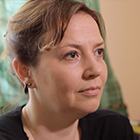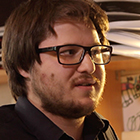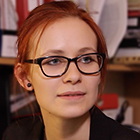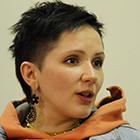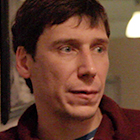Andrey Rylkov Foundation
Defends the rights of drug-dependent persons and participates in the public discussion of drug policy
The Foundation is named after Andrey Rylkov. He was our friend and an activist. In the end of the 1990-s – the beginning of the 2000-s, Andrey fought for ensuring the availability of HIV treatment and anti-retroviral therapy. Back then it was virtually impossible for drug-dependent individuals to get help. Andrey and his friends launched an organization called “Front ‘AIDS’”.
He was a drug user himself, but at the same time he was a cool activist, who defended drug users’ rights. Andrey organized a trade union of street social workers. He volunteered and took part in a big number of research projects. Our Foundation appeared several years after his death, and we decided to name it after Andrey.
For many years, the Foundation did not have its own office. We gathered in cafes, used our colleagues’ facilities, or simply met in someone’s kitchen. Recently, there occured a big change: we have found enough money to rent an office in a quiet Moscow courtyard between “Semyonovskaya” and “Partizanskaya” metro stations.
We had to invest some effort into it though: the office needed a renovation. Initially, it was a creepy, cluttered place without sewage and running water. Yet, with volunteers’ help, we have managed to transform into a decent work space. Some people donated money for the renovation, others brought tools, yet others spread the information in social networks.
In addition, we have managed to get a minivan. Now, we can carry out our social work in any weather conditions, transport preventive remedies, clean syringes, condoms and opioid blocking agents (Naloxone). Inside the car, a surgeon can examine lumps, ulcers and septic wounds of drug users. Our lawyers can provide consultations after the medical checkup is completed.
I spoke with Artur. Some inmates require psychological support. As a rule, case managers and social workers are in charge of this, but sometimes I may help with it as well. I wrote and filed a cassation appeal for him. Artur was charged with unaccomplished drug dealing during an evidentiary purchase. First, we were helping his girlfriend: they were charged as accomplices. We have been working this case starting from the first-instance court, then got the verdict, appealed, and now we are anticipating cassation.
This is a classic case: they are a married couple that use drugs. They were apprehended for drug dealing, allegedly, while in fact, they simply aided and abetted acquisition. They were sharing heroin, as this usually is the case. But “dealing” also applies to the situations when one drug user passes a small amount of drug to another person with drug dependence. Artur is Lena’s husband. He was sentenced to seven years in prison. The court of appeal shortened his sentence by two months. Lena got six years.
Every street encounter is interesting. They are always full of different stories and emotions.
Once I witnessed how two girls, who had not seen each other for five years, met at the point where we help drug-dependent people. They spent several years in the same prison, became friends and then lost touch with each other after being released. I remember that I almost cried when I saw how they embraced each other.
Recently, we also met a guy who had by then managed to serve five terms in prison. His wife died, his children were living with their grandmother, employers were not hiring him. Yet, in spite of being in such a difficult situation, he was arranging that grocery stores would give him products that had expired: buckwheat, pasta, canned meat, etc. He then cooked meals out of those products for those drug-dependent people who needed it. I think this is really cool. This is like a glimmer of hope, or something.
Conferences, seminars and other social events are extremely important for us. It is very easy to draw into one’s shell, into an alleged role of “experts” in social work and HIV prevention among the drug users. We are trying to avoid this. And it is precisely through the meetings with people outside of our environment that we can look at our work soberly and reflect upon it.
Moreover, it is important not to lock oneself inside one’s knowledge and to share one’s work experience with those who are interested in it. We believe that our seminars, forums and informal sessions contribute to the creation of a better environment for doing social work with drug users. In the end of the day, we hope this will pay off.
